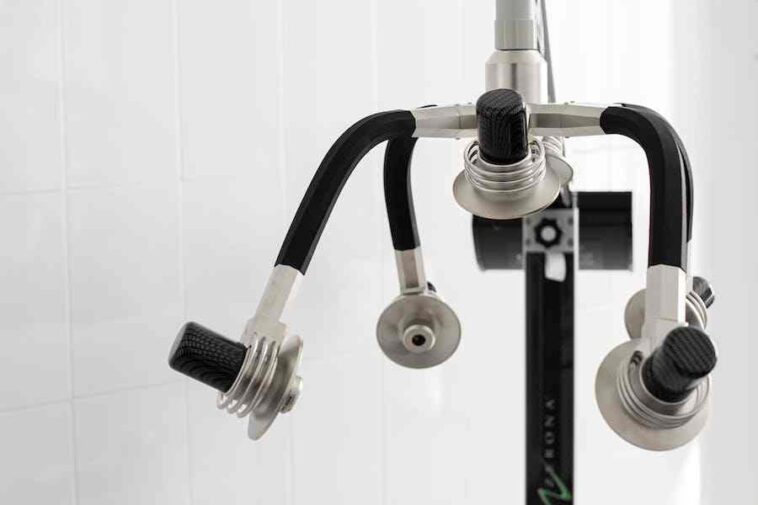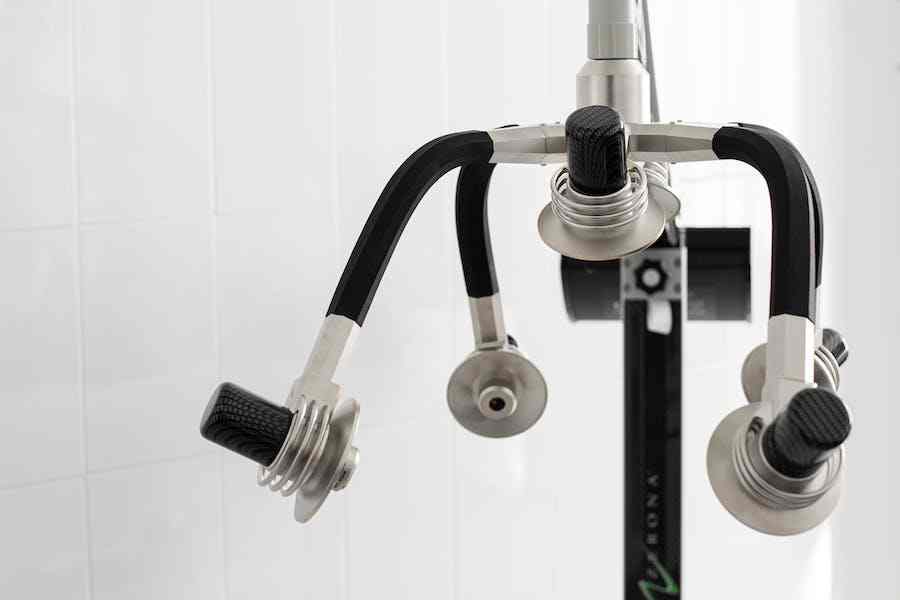Are you considering Intravenous Therapy as part of your weight loss journey? As the demand for alternative wellness approaches rises, IV Therapy has gained considerable attention for its potential health benefits.
Understanding the facts surrounding IV Therapy can help you decide on its role in your weight management strategy. This guide will objectively examine the pros and cons of IV Therapy in weight loss. Read on to learn more!
IV Therapy For Weight Loss: How It Works
Intravenous (IV) Therapy for weight loss operates through a direct infusion of essential nutrients into the bloodstream. This mechanism enhances nutrient absorption efficiency, directly delivering a concentrated mixture of vitamins, minerals, and amino acids into the bloodstream. The IV infusion process bypasses the digestive system, allowing for rapid absorption and immediate availability.

The ingredients in a weight loss infusion are specifically blended to help improve your energy levels and optimize your metabolism. For example, electrolytes administered during IV Therapy contribute to optimal hydration, aiding metabolic function. Meanwhile, B vitamins, zinc, vitamin C, and magnesium help boost your energy levels and combat fatigue.
When paired with healthy lifestyle habits such as regular exercise and diet changes, IV infusions may help you reach your weight loss goals.
Pros Of IV Therapy For Weight Loss
Incorporating IV Therapy into your weight loss plan offers several potential advantages, providing a direct route for nutrient delivery. Here are the top 5 to consider.
1. Enhanced Nutrient Absorption
IV therapy facilitates superior nutrient absorption by directly delivering essential vitamins, minerals, and amino acids directly into the bloodstream. This process bypasses the digestive system, ensuring a higher bioavailability of nutrients for immediate utilization by cells. The rapid infusion of these elements can contribute to more efficient cellular function and metabolic processes.
2. Hydration And Electrolyte Balance
IV Therapy is crucial in restoring and maintaining optimal hydration levels and electrolyte balance. The process is particularly beneficial when dehydration or electrolyte imbalances occur, such as during intense physical activity, illness, or specific medical conditions. Staying hydrated can also help you lose weight, as your body sometimes mistakes thirst for hunger signals.
3. Appetite And Metabolism Regulation
IV Therapy may influence appetite and metabolism by introducing key nutrients directly into the bloodstream. While the exact mechanisms are still under investigation, the potential modulation of these factors could contribute to weight management strategies. However, it’s essential to note that scientific evidence supporting the specific impact of IV Therapy on appetite and metabolism remains limited and requires further research.
4. Detoxification
IV Therapy can aid in detoxification by assisting the body in eliminating toxins. Through targeted nutrient infusions and hydrating fluids, treatments may support liver function and enhance the removal of excessive free radicals that can impact your weight.
5. Energy Boost And Vitality
IV Therapy may provide an immediate energy boost and help enhance overall vitality by delivering energy-boosting ingredients such as B12 and other B complex vitamins directly into your body.
Sustained effects on vitality may result from improved cellular function and increased energy levels that make it easier to reach your exercise goals.
Cons Of Incorporating IV Therapy
While IV therapy for weight loss presents many potential benefits, it is crucial to acknowledge its drawbacks. Understanding the cons is essential for a balanced perspective on its suitability.
1. Potential For Adverse Reactions
Adverse reactions may include allergic responses to certain ingredients or infection at the injection site. The sterile administration of IV Therapy is crucial to mitigate infection risks.
Individuals considering IV Therapy should be aware of these potential complications and consult with healthcare professionals prior to use. The overall safety and appropriateness of IV Therapy depend on individual health conditions.
2. Cost And Accessibility
Incorporating IV therapy for weight loss may pose financial implications and accessibility challenges. The expenses associated with IV Therapy sessions can vary, impacting its feasibility for some individuals.
Further, the availability of IV therapy services may be limited in certain locations. Prospective users should carefully consider these factors, weighing the potential benefits against the associated costs.
3. Regulatory And Ethical Considerations
Adherence to established standards and guidelines ensures the safety and effectiveness of IV Therapy. Healthcare professionals must comply with regional regulations governing IV Therapy administration, and ethical concerns about its marketing and application should be addressed prior to use.
The Bottom Line
The decision to incorporate IV therapy into weight loss strategies should be approached carefully, considering its pros and cons. Alternative medical treatments, such as a Wegovy shot, should also be considered alongside diet changes, exercise, and IV infusions.
While IV Therapy offers benefits such as enhanced nutrient absorption, hydration, and personalized treatment options, it is essential to acknowledge the potential for adverse reactions, cost implications, and regulatory considerations.
Prospective users must weigh the perceived advantages against the associated risks, ensuring informed decision-making and collaboration with qualified healthcare professionals for a comprehensive approach to weight management.





